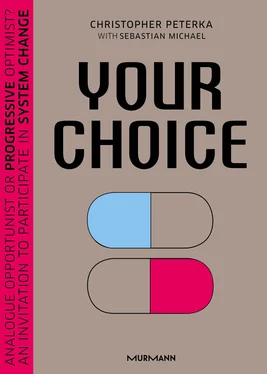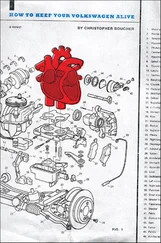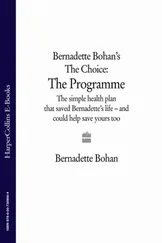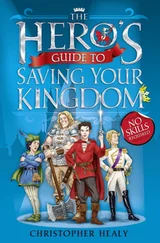What’s unclear is when this starts. Some people put it 12,000 to 15,000 years ago, when we developed agriculture and started cutting down woods on a very large scale, converting vast swathes of land for farming purposes and living in managed settlements.
Others place the beginning of the Anthropocene around the time of the Industrial Revolution. There are good arguments for this, too. From about 1760 to about 1840, the Industrial Revolution completely changes the way in which we use energy and human resources. We transform ourselves from a largely rural species to one that lives in cities.
[THE ANTHROPOCENE IS THE AGE OF HUMAN CONSEQUENCE.]
We immensely accelerate our production methods and instead of mainly using what’s on the ground or grows from it for our energy needs, such as wood, we begin to dig deep into the earth and start exploiting coal reserves. We burn prehistoric fossils on a scale that we have never burnt anything before. And we thrive. Some of us live in abject poverty and in the most horrendous conditions, children go down mines where they clog up their lungs in the dust-filled hell that is their workplace for twelve hours a day, entire populations are enslaved, and people die of cholera and malnutrition, but as a species, we explode: we’re become a success.
One school of thought attaches an exact date to the start of the Anthropocene: 16 thJuly 1945. On that day the United States carried out its first nuclear bomb test, which marks the beginning of the nuclear age in earnest. Once we had nuclear bombs at our fingertips, we could destroy ourselves and our habitat multiple times: that’s a major impact, no question.
Yet another view dates the start of the Anthropocene in the year 1964. The Beatles arrived in the United States, and Beatlemania broke out all over. The US were deeply entangled in the Vietnam War, and Tokyo held the Summer Olympics. There were race riots in some American cities, and Martin Luther King Jr was the youngest person so far to receive the Nobel Peace Prize. Kenya became a republic, and Pete Townshend of The Who smashed his first guitar at a concert in London. And one of the people writing this book was born. Yeay!
None of these events amount to a reason for naming 1964 the ›Start of the Anthropocene‹, though. What does is the accumulation of different human impacts that have been getting greater ever since the end of the Second World War in what’s known as the ›Great Acceleration‹: factors such as population growth, consumer goods produced, energy consumed, miles travelled, rubbish generated, and land converted across the globe.
[THE GREATEST IMPACT ON THE PLANET IS US. SO WE HAVE TO DEAL WITH THIS.]
It doesn’t really matter which of these you go for: they all have their merits. What’s interesting is that whichever way you look at it, we humans have been making our presence felt on planet Earth in ever more pronounced ways, and as we’ve been doing so, the point has been reached where we have become the defining element on it. The species that overpowers all others and therefore the planet as an ecological system. The living thing on whom all else depends.
We may still occasionally succumb to catastrophe, and there are lethal disasters that are not human made, but the greatest impact on the planet is us. So we have to deal with this. And how we deal with this is going to define who we are. Not just who we are now, but also who we are going to be, for the foreseeable future. Because our impact on the planet is not going to diminish, it’s going to increase. And our enmeshment with technology, which has given us this great advantage over all other species, is going to get stronger, not weaker. We are going to meld with our inventions, and we are going to be outpaced by our own creation, Artificial Intelligence. We are going to have to learn to live with this and handle it. Own it, define it, live it.
If you take, just for the sake of argument, the mid 1960s as the beginning of the Anthropocene, then this opens up a startling declension of timescales, and it goes like this:
Current thinking holds that what’s known as behavioural modernity—that is humans behaving in ways we still recognise as human, even though it would have been very different to how we behave today—started out about 50,000 years ago. The next big step, what we consider to be the early civilisations which are characterised by writing, the emergence of cities, and complex societies that have legal codes, began about 5,000 years ago. Modernity—the Age of Reason and the Enlightenment, the time when we began to put our trust in science—started very roughly 500 years ago. And yet the Anthropocene, the era during which our own impact surpasses the impact of everything else combined, is just over 50 years old.
You’ve probably seen the infographic depicting the history of our planet as a 24-hour clock, where zero hour is the formation of earth and midnight is now. On this metaphorical day, life—that is any kind of life—wakes up at about 4am. It then takes a good ten hours, till just after 2pm, to evolve into single-celled algae. Another four hours later: sexual reproduction. (At last!)
Dinosaurs roam the earth for about twenty minutes at around 11pm. Mammals take over at twenty to midnight, and we humans make our grand entrance at 23:58:43. Just over a minute ago. So wherever you set the beginning of the Anthropocene, it’s an incredibly short epoch. At the most, it takes up a minute of Earth time, more likely a fraction of a second.
Let that sink in, and enjoy the moment. Because it may not last. Some people think that we are lucky if, as humans, we have another fifty years on earth. The planet won’t mind: it will spin on for a good while, with or without us. But we think it’s worth pursuing the goal of hanging about for a little while longer. And that’s the point of this book: to churn over some ideas on how we can hang about on our planet Earth for a little while longer, and do so well.
ORIENTATION STATEMENTS
0.1
›A combination of surveillance data and behavioural code can bring about sustainable and civilised social conduct.‹

Plot this value on: A, C, D.
0.2
›Continuing the fainthearted discourse of today leads to personal isolation and depression.‹

Plot this value on: B, D, H.
0.3
›It is appropriate to get angry first, and then to think forward rather than backward.‹

Plot this value on: A, D, F.
0.4
›An extension of the Anthropocene is desirable.‹

Plot this value on: A, E, H.
EXERCISE FOR CHANGE
Get angry. Destroy something dispensable*.
*DISCLAIMER:
You’re a responsible adult: don’t, obviously, damage someone else or their property. Don’t hurt yourself or anyone else, and don’t break the law.
If you’re not an adult, or not responsible, find a responsible adult to supervise you before you do this exercise.
Читать дальше













